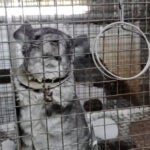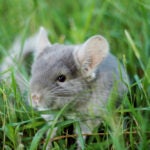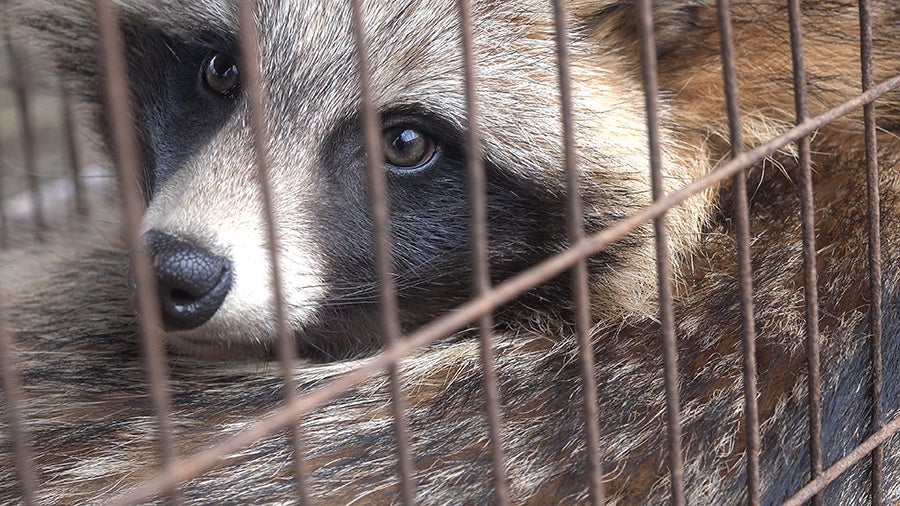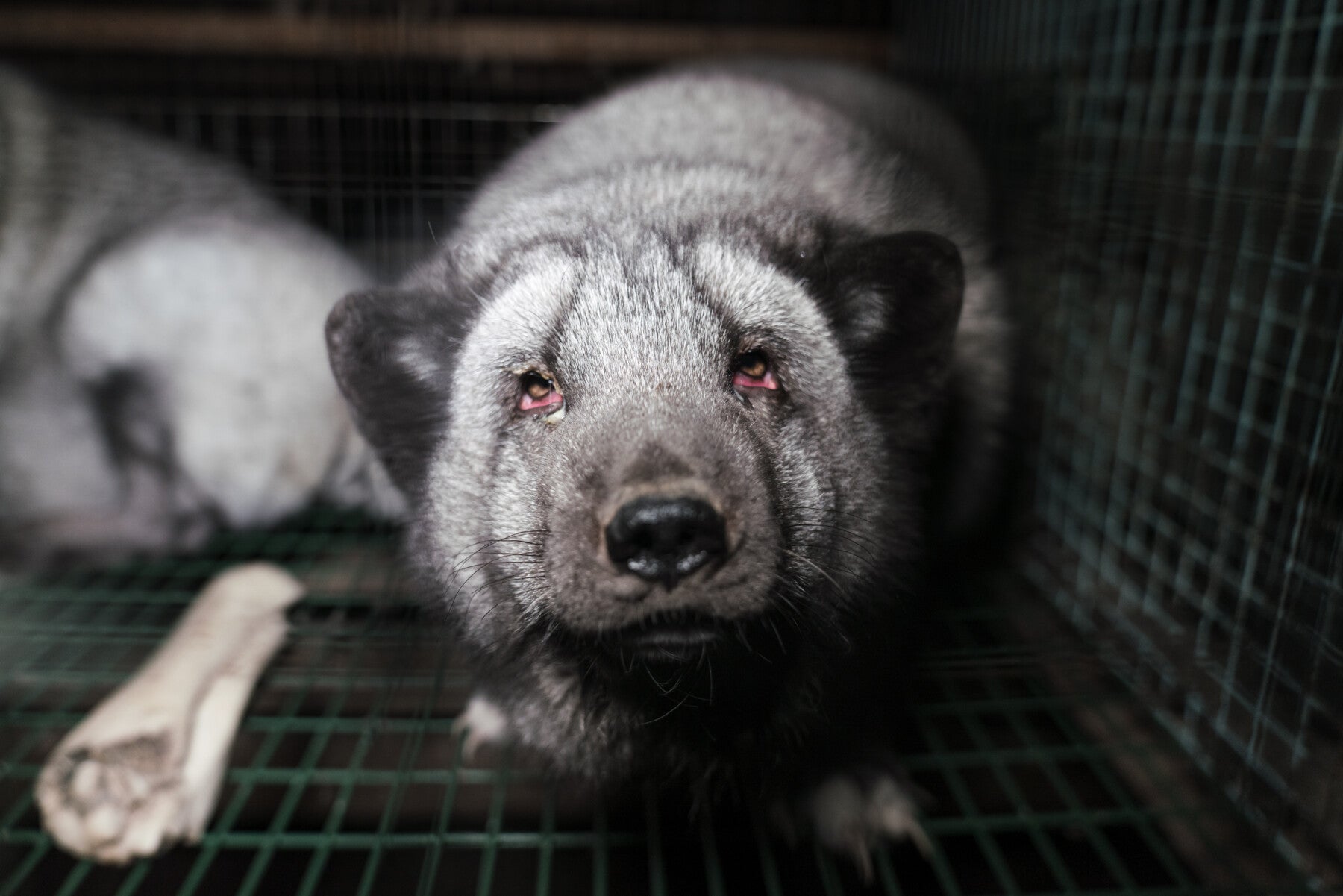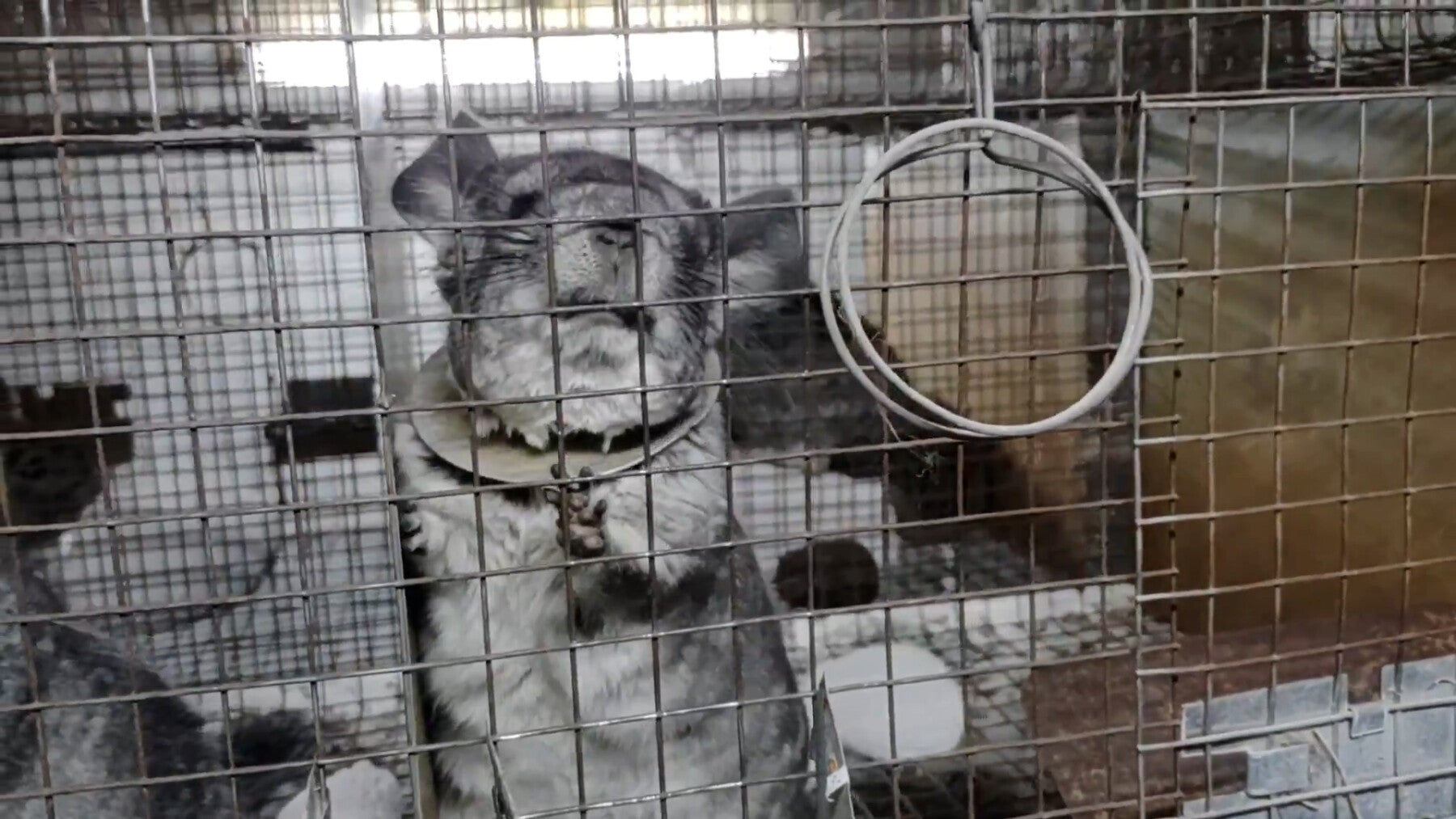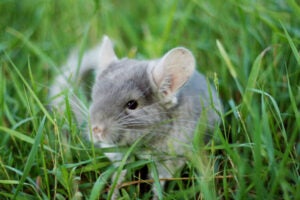
BUCHAREST, Romania—Four fashion brands in Romania have pledged to go fur-free after working with Humane Society International/Europe, and have become the first designers in Romania to join the global Fur Free Retailer program. Ioana Ciolacu, Muse um Concept, REDU and OCTAVIA CHIRU now join the almost 1,600 fashion brands, retailers and designers in 25 countries around the world to join Fur Free Retailer, including Gucci, Moncler, Prada, Adidas, H&M and Zara.
The fur-free announcements come at a crucial moment in HSI/Europe’s campaign to end the fur industry in Romania, with three committees in the House of Deputies discussing a bill to ban the keeping of mink and chinchilla for their fur. In December last year the Romanian Senate voted in favour of the bill.
Andreea Roseti, Romania country director for HSI/Europe, said: “HSI/Europe is pleased to have been able to work alongside these Romanian designers and fashion brands and applauds them for taking the important decision to join the Fur Free Retailer program. By making this commitment to a fur-free future, they are showing they are in tune with the growing majority of ethical consumers who believe that animals should not suffer in the name of fashion. Politicians in Romania also have an opportunity to take a stand against fur cruelty by supporting the bill to ban fur farming, and we hope that they will use their vote to consign this cruel industry to Romania’s history books.”
Romania is one of the few remaining EU member states where the keeping of animals for fur is still permitted. The practice has been banned in 19 European countries, including 14 EU member states, following public and political concern about animal welfare and the spread of zoonotic diseases. The fur industry in Romania is in decline, with the number of fur farms having dropped dramatically from more than 150 in 2013 to 13 in 2022. Despite this, two large mink farms and around a dozen chinchilla farms still operate, producing approximately 100,000 mink pelts and 15,000 chinchilla pelts annually.
Last year, an HSI/Europe undercover investigation exposed the animal suffering and deprived living conditions on Romanian chinchilla farms, where the animals are kept in small, dark and dirty cages, the females forced into a nearly permanent reproduction cycle before their short lives are ended by neck-breaking or in improvised gas chambers.
Around the world, there is increasing public outcry about the ethics of keeping and killing animals in factory farm conditions solely for fur fashion. In recent years, additional public, political and scientific concerns have intensified after mink on more than 480 fur farms across Europe and North America tested positive for the virus that causes SARS-CoV-2 including instances where the virus was transmitted to humans. Foxes and raccoon dogs, common species bred for fur, are also susceptible to the virus.
Public demand for an EU-wide ban on fur farming and fur imports has also been clearly demonstrated during the past 10 months. The Fur Free Europe petition collected more than 1.7 million signatures from EU citizens, and the European Commission is expected to respond within three months and to take action accordingly.
Ioana Ciolacu, the Romanian designer from contemporary womenswear fashion label of the same name, states: “Killing animals for fur is barbaric, unethical and in bad taste. When I see fur used in fashion, I see poor taste, so no animals should be killed in its name, because let’s be honest – no design can match this supreme sacrifice.”
Adina Orboi, the designer behind Muse um Concept, says: “Muse um Concept believes that nature, animals and people should be cared for and respected equally. It is an ethical choice not to use fur and other animal materials in my collections.”
Designer Andreea Sofronea from the sustainable fashion social enterprise, REDU, says: “For nearly eight years, our primary focus has been on environmental protection and making a positive impact on the planet. With technological advancements and sustainable alternatives in the textile industry, fur farming has become obsolete, inhumane, and purposeless in today’s society.”
Octavia Chiru from OCTAVIA CHIRU says: “We’ve created our sustainable fashion brand in a world of consumerism to make a difference. We want a future for everyone, a healthy one!”
Fur facts
- More than 100 million animals are killed for their fur every year worldwide—that is equivalent to three animals dying every second, just for their fur.
- Fur farming has been banned in 19 European countries including the Netherlands, Austria, Belgium, Czech Republic, Slovakia, Croatia, Slovenia, Luxembourg, Malta, Ireland, Estonia, France, Italy and most recently, on 22nd September 2022, Latvia. Political discussions on a ban are also underway in Romania, Lithuania and Poland. A further two countries (Switzerland and Germany) have implemented such strict regulations that fur farming has effectively ended, and three other countries (Denmark, Sweden and Hungary) have imposed measures that have ended the farming of certain species.
- The Fur Free Retailer program is the world’s leading initiative to connect fur-free businesses with customers looking for ethically sourced products. The program is free to join and aims to advise and encourage companies to go fur-free and further the spirit of ethical consumerism. The program is initiated by the Fur Free Alliance, an association of more than 50 animal welfare organizations, and is represented in Romania by Humane Society International/Europe.
ENDS
Media contact: Yavor Gechev, communications director for HSI/Europe: ygechev@hsi.org +359889468098

